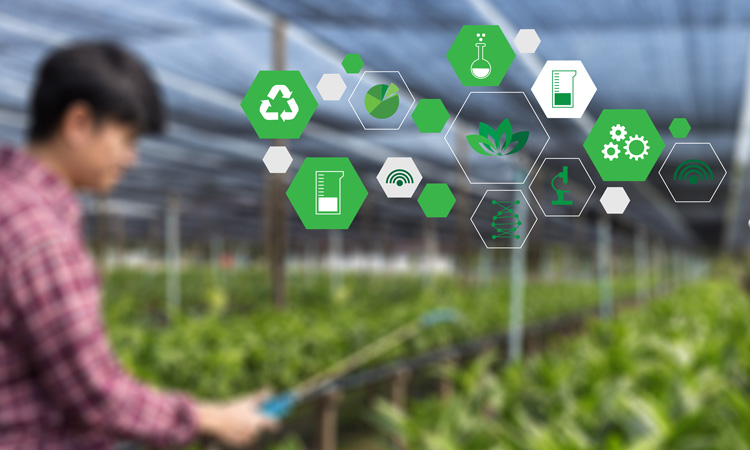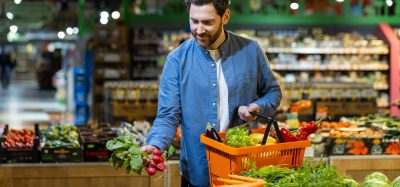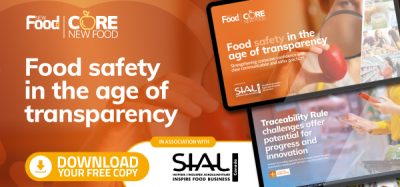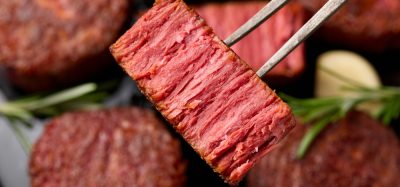FoodDrinkEurope: five tests that the Farm to Fork Strategy must pass
- Like
- Digg
- Del
- Tumblr
- VKontakte
- Buffer
- Love This
- Odnoklassniki
- Meneame
- Blogger
- Amazon
- Yahoo Mail
- Gmail
- AOL
- Newsvine
- HackerNews
- Evernote
- MySpace
- Mail.ru
- Viadeo
- Line
- Comments
- Yummly
- SMS
- Viber
- Telegram
- Subscribe
- Skype
- Facebook Messenger
- Kakao
- LiveJournal
- Yammer
- Edgar
- Fintel
- Mix
- Instapaper
- Copy Link
Posted: 5 May 2020 | Sam Mehmet (New Food) | No comments yet
The European Commission recently delayed the publication of its Farm to Fork strategy until at least mid-May, and FoodDrinkEurope has responded with five key points it believes the strategy must incorporate.


As the European Commission continues its period of reflection, FoodDrinkEurope has set out five tests that it believes the Farm to Fork Strategy must pass if it is to deliver truly sustainable food systems in light of COVID-19.
Maintain the ambition
FoodDrinkEurope stated that the Farm to Fork Strategy must not lose its ambition to contribute to the EU’s goal to become the first climate-neutral region in the world by 2050, driving truly sustainable food systems. It said that COVID-19 should not be used as an excuse to ignore the shared responsibility towards more sustainable production and consumption.
Support SMEs to thrive
Small and medium sized businesses (SMEs) make up approximately 99 percent of the sector and FoodDrinkEurope claimed that, without help, many of these SMEs will go out of business and many more will find it hard to survive the aftermath of the pandemic. The Farm to Fork Strategy must help SMEs thrive, avoiding unnecessary penalisation, the organisation suggested.
Ensure Single Market principles and trade
To ensure the diversity, affordability and safety of products for consumers, while also providing a vehicle for growth and jobs in the industry, FoodDrinkEurope urged the European Commission to embed Single Market principles, such as harmonised rules across all Member States, into the Farm to Fork Strategy. Diversion from these principles will add costs, administrative burdens and uncertainty to operators and consumers, it said. “The Farm to Fork Strategy should acknowledge the strength of varied food system models – short and long-chain, local and international.”
Stimulate green innovations
“The Farm to Fork Strategy must give the food and drink industry the confidence to invest in innovation and pursue ideas that will further improve the environmental footprint of food and drink products, develop sustainable packaging, and conduct low carbon operations,” FoodDrinkEurope said. “It goes without saying that green policy must never jeopardise food safety and food security.”
Facilitate healthier and sustainable living
FoodDrinkEurope has urged the Farm to Fork authors to recognise the value of working with industry to ensure healthier and more sustainable living across Europe. It said that one positive outcome of COVID-19 has been a renewed interest in food as people explore their cupboards, discover new recipes, and re-think their lifestyles. “This presents opportunities for the Farm to Fork Strategy to seize upon, such as empowering consumers to choose healthy diets through a single, harmonised nutrition labelling system. Alongside the label, better education will help consumers of all ages to understand what a balanced, healthy, and sustainable diet looks like.”
Related topics
COVID-19, Environment, Food Safety, Health & Nutrition, Regulation & Legislation, Supply chain, Sustainability, Temperature control, Trade & Economy









